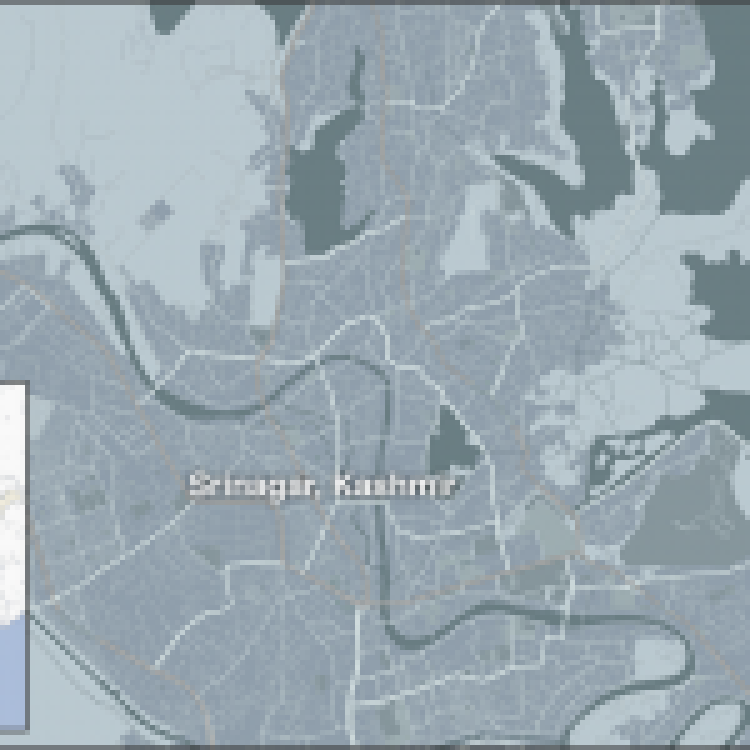<p>Pakistan has claimed responsibility for shooting down two Indian air force jets and is holding an Indian pilot in custody.</p>
<p>The attack follows escalating tensions between the two nations. On February 14, the Pakistan based militant organisation Jaish-e-Mohammad (JeM) conducted a suicide attack which killed 40 Indian security personnel in the Indian controlled region of Kashmir. In response, the Indian Air Force (IAF) conducted a targeted air strike on a militant camp near Balakot in the province of Khyber Pakhtunkhwa, Pakistan.</p>
<p>India’s external affairs minister, Sushma Swaraj has stated that the objective of the attack “was to act decisively against the terrorist infrastructure of the JeM in order to pre-empt another terrorist attack in India”.</p>
<p>Pakistan has disputed that attack hit a military target claiming the strike hit an empty area. In response to IAF’s attack on Tuesday, Pakistan’s military claims it engaged six targets in Indian territory but carried out air strikes on “open ground”. Major General Asif Ghafoor of the Pakistan army stated care was taken to ensure that Pakistan’s air strikes were a safe distance away from civilian, administrative or military sites.</p>
<p>Ghafoor has claimed that two aircraft landed on separate parts of the dividing line; “One of the aircraft fell inside AJ&K, while others fell inside IOK”. India has confirmed that one of its pilots were missing. India also claims it was able to shoot down a Pakistani jet as it attempted to escape Pakistan has not corroborated this. The BBC notes these air strikes across the “Line of Control” are the first since the 1971 war.</p>
<p>Footage has been released of one of the pilots held hostage who identified himself as Abhinandan. Ghafoor stated that he will be treated in accordance with military ethics. A spokesman for India’s foreign ministry, Raveesh Kumar asserted knowledge that Pakistan has one of India’s pilots in custody but told reporters “We are ascertaining the facts”. </p>
<p>The Prime Minister of Pakistan, Imran Khan, stage a television address in which he made explicit reference to both nation’s nuclear arsenal and the need for de-escalation.</p>
<p>“With the weapons you have and the weapons we have, can we afford miscalculation?” Khan said. “Shouldn’t we think that, if this escalates, what will it lead to?”</p>
<p>“We should sit down and resolve our problems through dialogue.”</p>
<p>India’s external affairs minister, Sushma Swaraj, has echoed this sentiment stating: “India does not wish to see further escalation of the situation and India will continue to act with responsibility and restraint.”</p>
<p>In responding to the crisis, US Secretary of State, Mike Pompeo, issued a statement supportive of India’s pre-emptive air strike describing the incursion as a “counter-terrorism action”. Pompeo goes on to call on Pakistan to take “meaningful action against terrorist groups operating on its soil”.</p>
<p>Since these recent air strikes, all commercial airports in Pakistan have been shut alongside eight major Indian airports including those in Jammu city, Srinagar and Amritsar.</p>
<p>Shops and markets within Kashmir have gone on strike in protest of India’s arrest of hundreds of separatist activists in the days before the IAF’s airstrike on Tuesday.</p>
<p>Read more <a href="https://www.theguardian.com/world/2019/feb/27/pakistan-india-jets-shot-…">here</a> and <a href="https://www.bbc.com/news/world-asia-47383634">here</a>.</p>
We need your support. Every contribution counts.
Sri Lanka is one of the most dangerous places in the world to be a journalist. Tamil journalists are particularly at threat, with at least 41 media workers known to have been killed by the Sri Lankan state or its paramilitaries during and after the armed conflict.
Despite the risks, our team on the ground remain committed to providing detailed and accurate reporting of developments in the Tamil homeland, across the island and around the world, as well as providing expert analysis and insight from the Tamil point of view
We need your support in keeping our journalism going. Support our work today.

